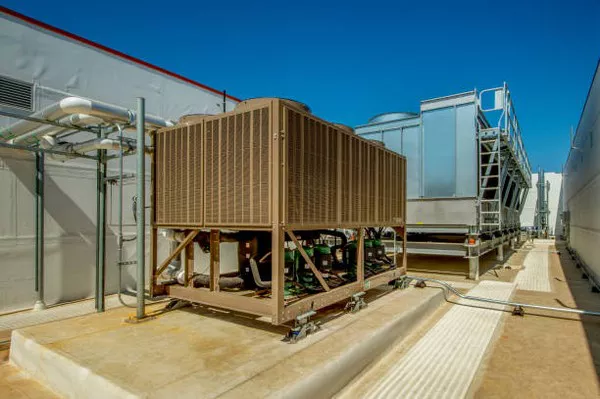In the realm of healthcare, a reliable power supply is paramount. Hospitals depend on electricity to sustain critical operations, from powering life-saving medical equipment to maintaining climate control for patient comfort. Given the potential consequences of power outages, hospitals invest in backup power systems, typically relying on generators to ensure uninterrupted electricity supply during emergencies. However, understanding the lifespan of hospital generators is crucial for effective maintenance and planning. In this article, we delve into the factors influencing generator lifespan and strategies to optimize their longevity.
Importance of Hospital Generators:
Hospital generators serve as the backbone of emergency preparedness, ensuring continuity of care during power outages caused by natural disasters, grid failures, or other unforeseen events. These generators provide essential power to critical areas such as operating rooms, intensive care units, and emergency departments, where uninterrupted electricity is vital for patient safety and well-being.
Factors Influencing Generator Lifespan:
Maintenance: Regular maintenance is essential for prolonging the lifespan of hospital generators. Routine inspections, testing, and servicing help identify and address potential issues before they escalate, ensuring optimal performance and reliability.
Load Capacity: Hospital generators are designed to handle specific loads based on the facility’s requirements. Operating generators beyond their capacity can lead to accelerated wear and tear, shortening their lifespan. Proper load management and sizing are critical factors in maximizing generator longevity.
Fuel Quality: The quality of fuel used in generators can significantly impact their performance and lifespan. Contaminated or degraded fuel can cause engine problems and lead to premature wear. Hospitals must adhere to strict fuel quality standards and implement proper fuel storage and maintenance practices.
Environmental Conditions: Generators are often installed in outdoor or semi-outdoor environments, exposing them to various weather conditions such as extreme temperatures, humidity, and corrosive elements. Adequate protection and maintenance are necessary to mitigate the effects of environmental factors on generator components.
Frequency of Use: The frequency with which hospital generators are utilized can influence their lifespan. Generators that undergo frequent start-up and shutdown cycles may experience greater wear on components such as engines, batteries, and electrical systems. Proper scheduling and operational protocols can help minimize wear and extend generator lifespan.
Typical Lifespan of Hospital Generators:
The lifespan of hospital generators can vary depending on several factors, including the quality of maintenance, operational conditions, and the specific make and model of the generator. On average, well-maintained hospital generators can last anywhere from 20 to 30 years or more. However, this lifespan is not guaranteed, and generators may require replacement or major overhaul before reaching this threshold, especially in demanding operational environments.
Optimizing Generator Longevity:
To maximize the lifespan of hospital generators and ensure reliable performance when needed most, healthcare facilities can implement the following strategies:
Scheduled Maintenance: Develop and adhere to a comprehensive maintenance schedule that includes regular inspections, testing, and servicing by qualified technicians. Addressing minor issues promptly can prevent them from escalating into major problems that compromise generator performance and longevity.
Load Management: Monitor and manage generator loads to ensure they operate within their designed capacity. Avoid overloading generators, as this can lead to premature wear and reduced lifespan. Consider load shedding or prioritization strategies during emergencies to minimize strain on the generator.
Fuel Management: Implement strict fuel quality control measures and storage practices to prevent fuel degradation and contamination. Regularly test and treat fuel to maintain optimal quality and performance. Consider using fuel additives or stabilizers to prolong fuel lifespan and prevent engine issues.
Environmental Protection: Provide adequate shelter and protection for generators to shield them from harsh weather conditions and environmental elements. Conduct regular inspections to identify and address any signs of corrosion, rust, or damage caused by environmental exposure.
Operational Protocols: Establish clear operational protocols for generator usage, including startup and shutdown procedures, routine testing, and emergency response plans. Train staff members on proper generator operation and maintenance protocols to ensure consistent performance and longevity.
Monitoring and Surveillance:
Implement remote monitoring and surveillance systems to continuously monitor generator performance, fuel levels, and operational parameters. Proactive monitoring allows for early detection of potential issues, enabling timely intervention and maintenance to prevent costly downtime.
See Also Will a 2200-Watt Generator Run Your RV Air Conditioner?
Conclusion:
Hospital generators play a critical role in ensuring uninterrupted power supply during emergencies, safeguarding patient care and safety. Understanding the lifespan of hospital generators and implementing effective maintenance and operational strategies are essential for optimizing their longevity and reliability. By prioritizing regular maintenance, proper load management, fuel quality control, environmental protection, and operational protocols, healthcare facilities can maximize the lifespan of their generators and uphold their commitment to providing uninterrupted care, even in the face of power outages and emergencies.

